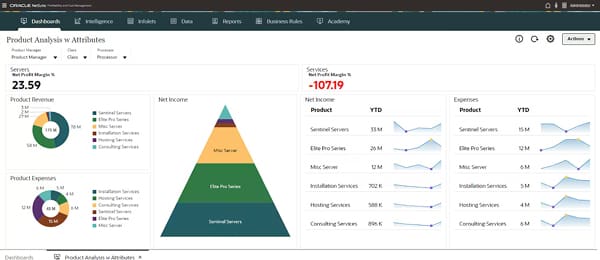What Is NetSuite Profitability and Cost Management?
NetSuite Profitability and Cost Management makes it easier for organizations to gain insights into their costs and profitability across various dimensions of their business, including by customers, products, regions, and more. The application can accurately analyze and allocate cost and profitability drivers. This insight helps companies optimize resource allocation, improve cost management practices, and drive profitability by offering a comprehensive view of performance across the business.
Gain a deeper understanding of what’s really driving your costs and profitability
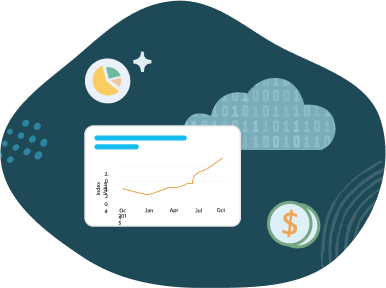
Allocate Resources More Effectively
Gain insights into top cost drivers, shared resource allocation methods, and relationships between cost objects that can significantly affect overall costs and profitability.
NetSuite Profitability and Cost Management Benefits
NetSuite Profitability and Cost Management Features
NetSuite Profitability and Cost Management simplifies the process of allocating resources by providing a deeper understanding of costs and profitability.
Allocations
- Data Sources. Combine financial metrics with operational insights from any source.
- Resource Allocation. Simplify complex resource distribution across departments, accurately modeling shared resource usage.
- Allocation Insights. View clear, easy-to-understand maps of costs and profits.
- Validation Reports. Verify every step of your allocation process with comprehensive validation reports so you’re confident costs and profits align with your objectives.
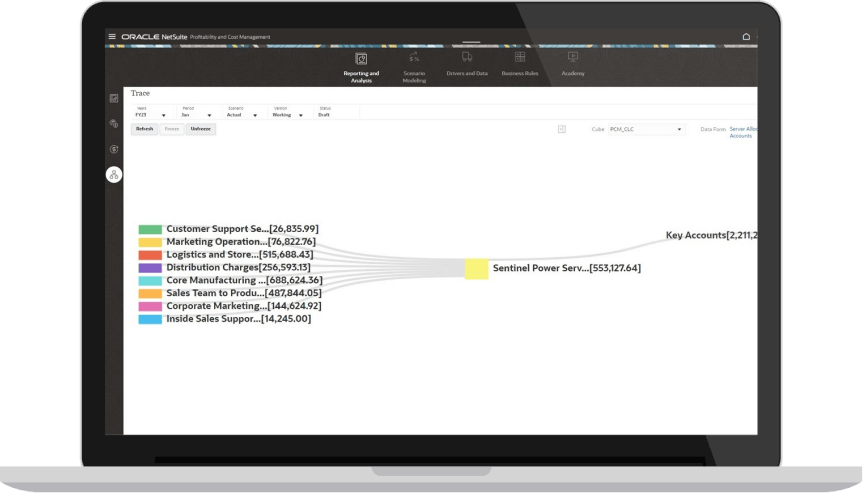
Modeling
- Cost and Profitability Modeling. Gain insights into the profitability of customer segments, products, and business units to inform resource allocation decisions.
- Shared Services Cost Allocation. Ease the allocation of shared services costs across departments and minimize disputes with transparent cost breakdowns.
- Tax Transfer Pricing Automation. Automate tax transfer pricing between legal entities to reduce compliance challenges and boost transparency with an auditable trail.
- Regulatory Cost Calculation. Calculate and document regulatory costs to facilitate compliance with reporting regulations. This includes negotiation pricing, overhead rate justification, and jurisdiction profitability reporting.
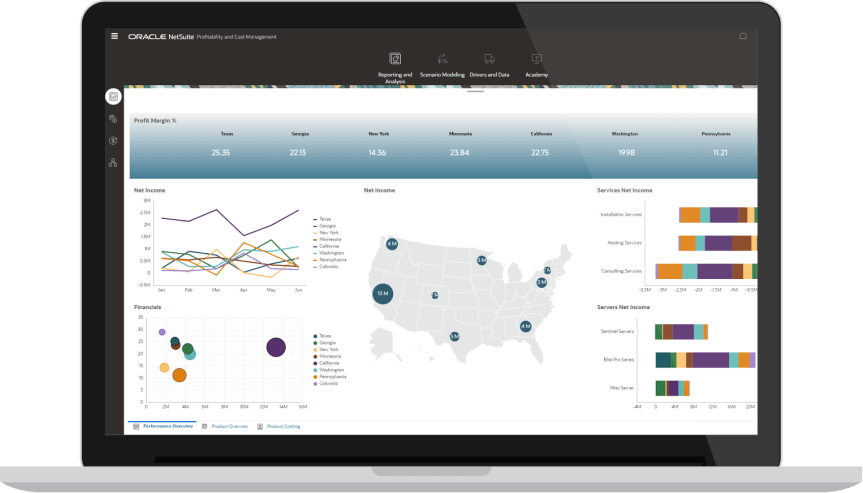
What-if Probability and Cost Scenarios
- Test Business Strategies. Model potential business changes, such as introducing new products, altering delivery methods, or growing your customer base to optimize profitability.
- Anticipate Regulatory Shifts. Proactively assess the impact of regulatory changes such as tax or tariff adjustments to understand cost impacts and justify resulting changes to interest, shipping, insurance, and other rates.
- Refine Cost Drivers and Allocation Methods. Gain insight into major cost drivers, optimize shared resource allocation methods, and understand the intricate relationships between cost objects.
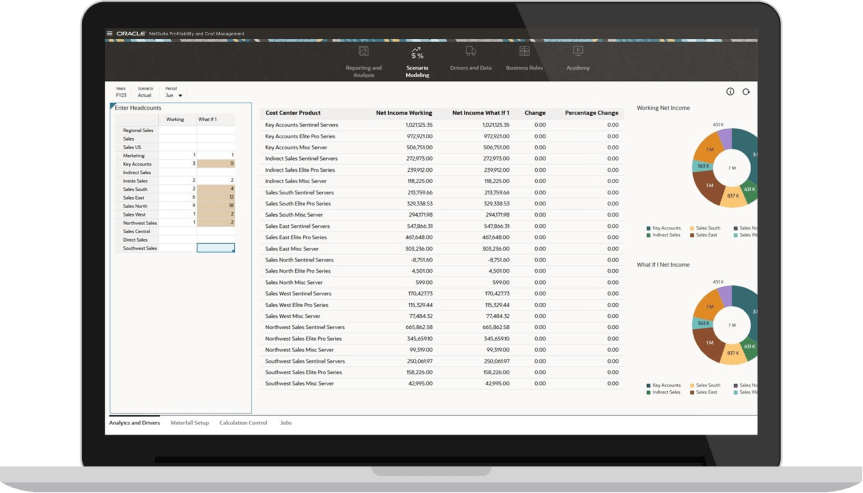
Challenges NetSuite Profitability and Cost Management Solves

How Much Does NetSuite Profitability and Cost Management Cost?
Companies of every size, from pre-revenue startups to fast-growing businesses, have made the move to NetSuite. Looking for a better way to run your business but wondering about the cost?
Users subscribe to NetSuite for an annual license fee. Your license is made up of three main components: core platform, optional modules and the number of users. There is also a one-time implementation fee for initial setup. As your business grows, you can easily activate new modules and add users – that’s the beauty of cloud software.
NetSuite Profitability and Cost Management Cost is available as an add-on module.
Contact NetSuite Now(opens in new tab)Resources

Data Sheets
Get more information on the specifications, features, and benefits of NetSuite Profitability and Cost Management.
